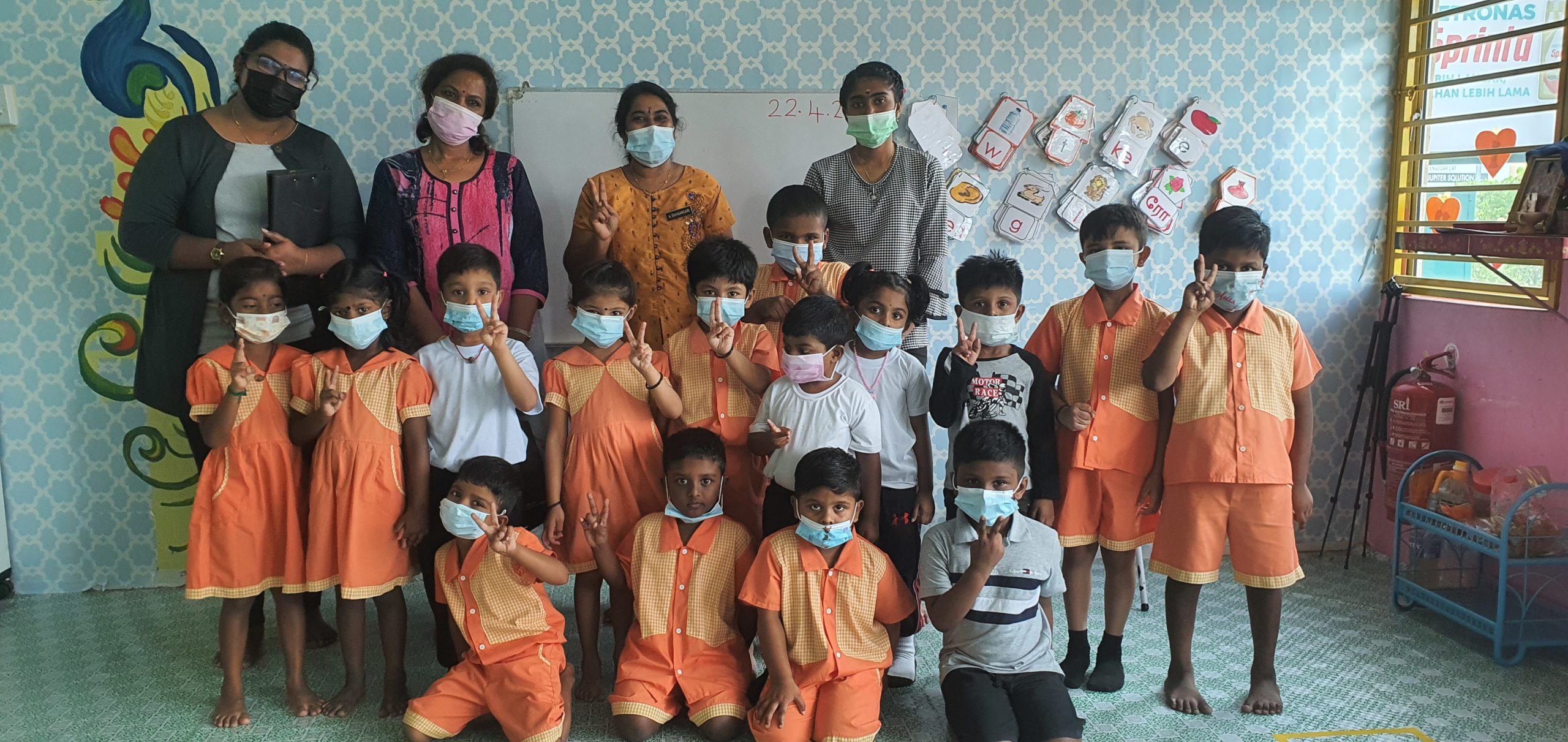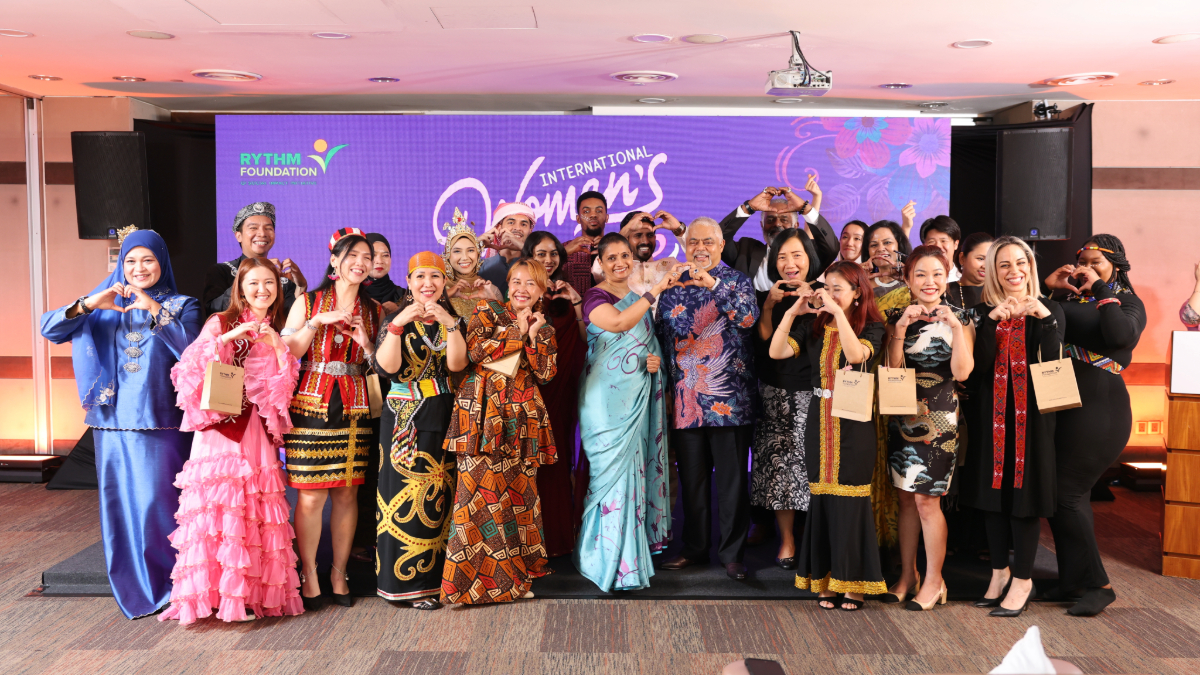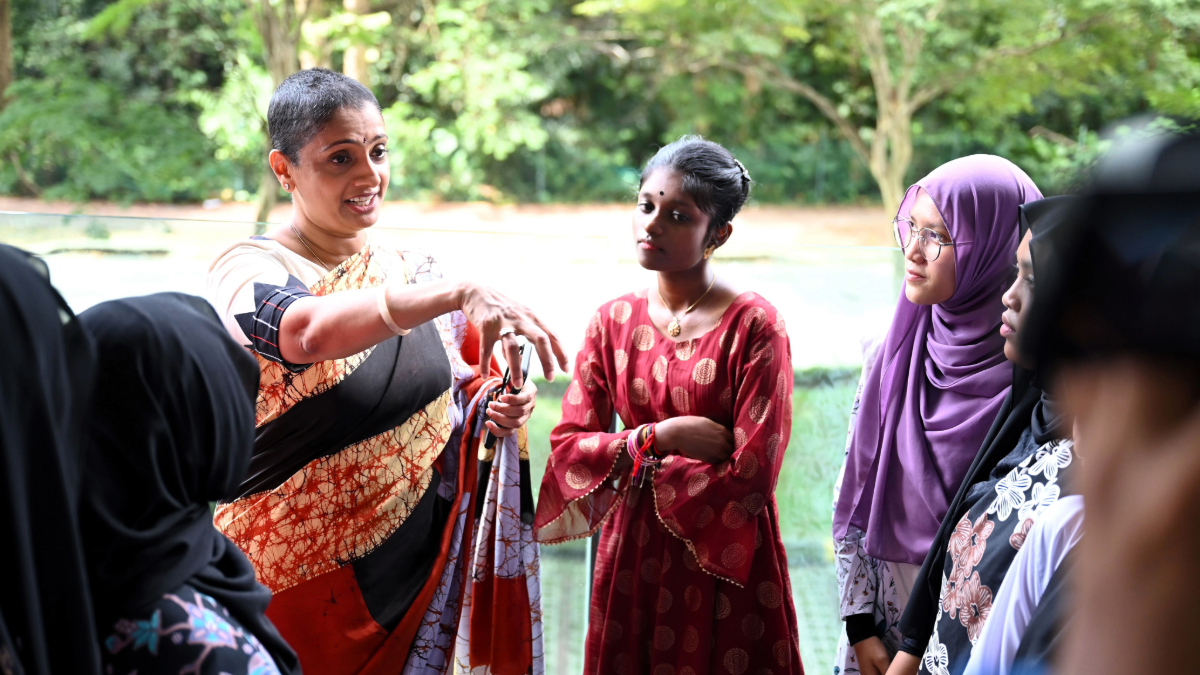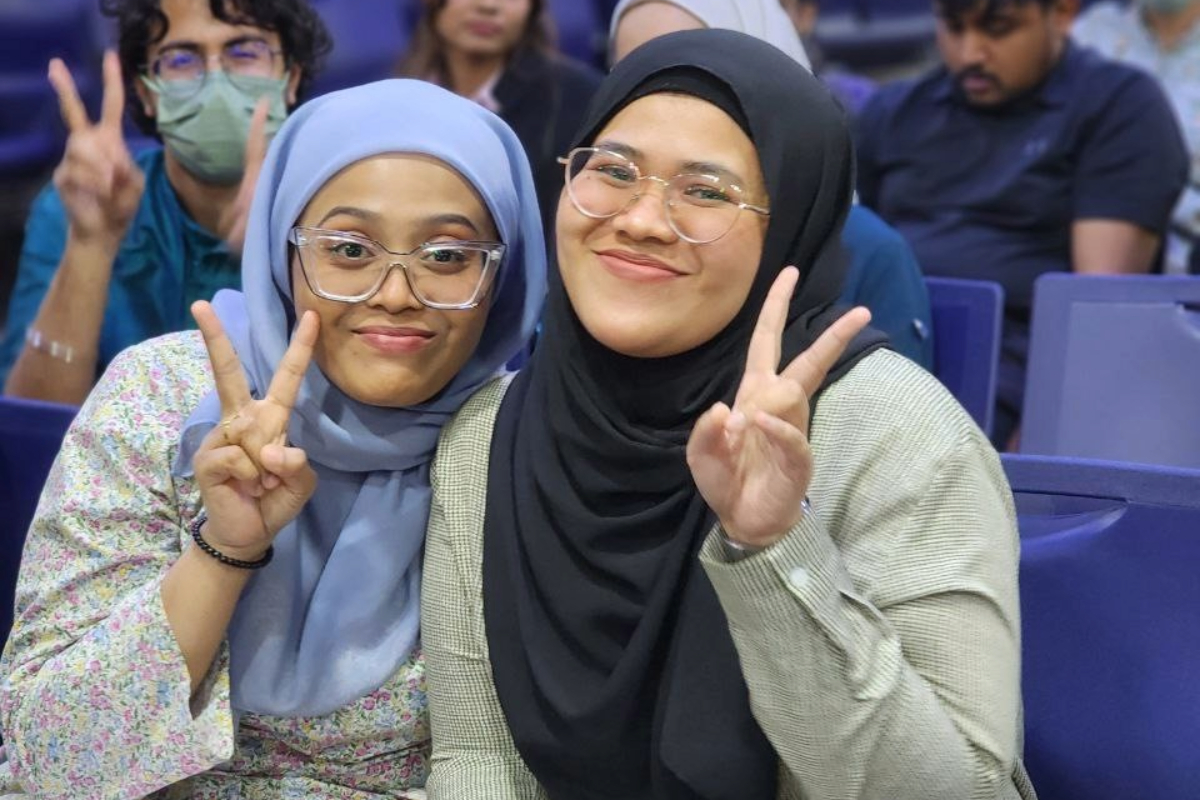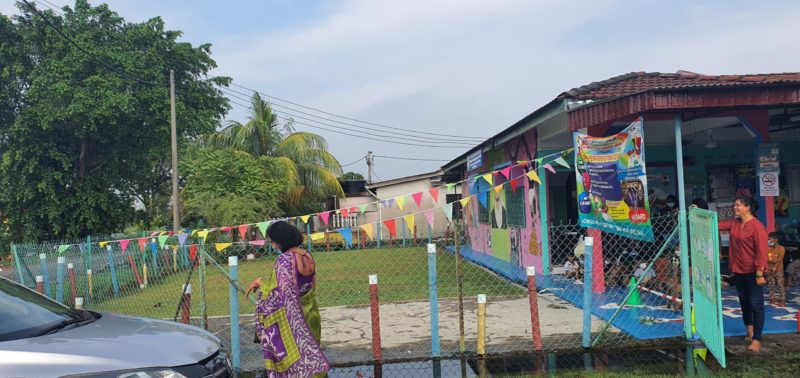 Tadika Senyuman Manja, Kapar one of the schools under the patronage of PPIGM
Tadika Senyuman Manja, Kapar one of the schools under the patronage of PPIGM
“Since the pandemic hit, we kept hearing from teachers in different schools about how they couldn’t cope or keep the preschools going. The teachers were ready to teach their students and put in the work to overcome the challenges, but they couldn’t see a way for them to sustain themselves,” said Varalu Thevi, the deputy president of Persatuan Penjana Impian Guru Malaysia (PPIGM).PPIGM is a non-government organization (NGO) made up of a group of educators dedicated to the capacity building of the teachers from these Tamil preschools in terms of their knowledge, skills, well-being, resilience and mentoring, while also creating more opportunities for learning through a global education. PPIGM was born in an effort to make vernacular pre-school education more accessible to children from underserved B40 families intending to attend Tamil primary schools.
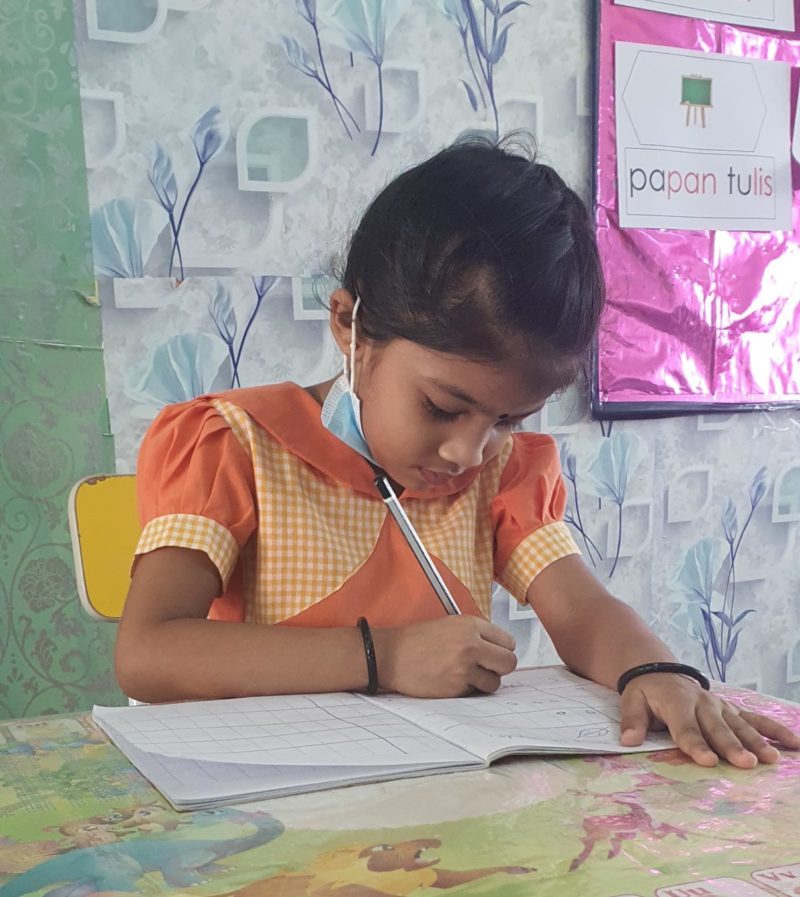 A vernacular preschool education is crucial for students entering Tamil primary schools
Also Read: RYTHM Foundation Supports Tamil School with A New Library
A vernacular preschool education is crucial for students entering Tamil primary schools
Also Read: RYTHM Foundation Supports Tamil School with A New Library
“A Tamil preschool education is important because for most of these children, it is their mother tongue. Since they will be enrolling in Tamil primary schools, it is crucial that they have a strong foundation in the language. These vernacular preschools provide a familiar environment for the children’s learning while nurturing their living skills,” said Varalu.Despite having gone without pay for months, the teachers remained steadfast in their commitment to providing a preschool education to these disadvantaged children. However, after over a year of struggling to stay afloat, these schools reached a point where their resources were severely depleted. The teachers themselves had exhausted their funds, and the only option they were left with, was to reach out for help. Thankfully, RYTHM Foundation responded to their call for support through PPIGM and reached out to provide salary grants for the teachers. Also Read: RYTHM Foundation Addresses the Plight of Pre-School Teachers Through Salary Grant
“Education is a basic need and right of every child. It is also invariably the ticket to success but unfortunately, children from disadvantaged communities are sometimes deprived access to education for the sole reason of a lack of finances. At RYTHM, we strongly believe that there has to be equity and equality in education. No child should be left behind because it is their right to be provided the provisions for a quality education. We also thought what these teachers did was something truly commendable and so it was easy to make the decision to support this programme to provide them with salary grants to keep forging ahead,” expressed Santhi Periasamy, Head of RYTHM Foundation.The goal of the partnership between PPIGM and RYTHM is to enable the successful continuity and sustainability of the preschools at the end of this two-year intervention plan through the capacity building of its educators. While RYTHM guarantees the teachers’ payroll during this initiative, PPIGM will be wholly responsible for channeling the funds effectively and ensuring that measures are taken to upskill the teachers so that they can sustain the preschools.
“These teachers already have the required qualifications and experience to teach preschool kids, however, the field of teaching and learning is a fast-evolving business. As such, teachers need the developmental support to keep up with providing their students with quality education. Quality education is imperative to these kids who may not really be getting the support they need from their families who may lack the resources or skills themselves to render their children the support they need,” said Santhi on why upskilling the teachers is a necessary aspect of the partnership programme with PPIGM.Also Read: RYTHM Foundation Helps Malaysian Children Stay in School
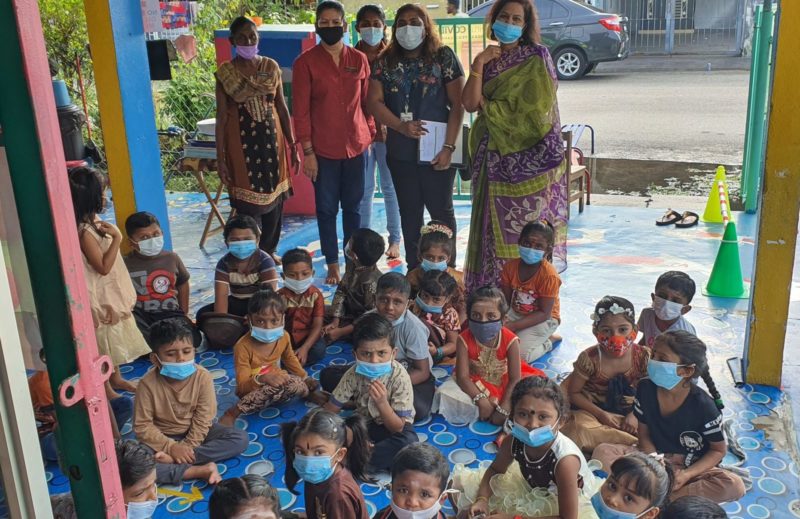 Teachers are feeling a boost of confidence to keep teaching in a virtual world, thanks to the financial support from RYTHM.
During the course of this partnership for this intervention programme, PPIGM will also work towards ensuring the preschools fulfil all requirements needed for them to be absorbed under the Ministry of Education. The initial plan targets a group of 15 preschools who are currently under the patronage of PPIGM with the hopes of replicating this programme with other stakeholders.
Teachers are feeling a boost of confidence to keep teaching in a virtual world, thanks to the financial support from RYTHM.
During the course of this partnership for this intervention programme, PPIGM will also work towards ensuring the preschools fulfil all requirements needed for them to be absorbed under the Ministry of Education. The initial plan targets a group of 15 preschools who are currently under the patronage of PPIGM with the hopes of replicating this programme with other stakeholders.
“Now with the financial support from RYTHM and PPIGM on a two-year timeline – we hope the pandemic will be over by then – we believe that the teachers will be prepared to sustain their schools, especially as they are more goal-oriented and have confidence in themselves now. We have to focus on sustainability because we can’t always expect others to lend a hand. We have to learn how to grow any token we receive, however big or small.,” said Varalu.Ranchany Lata, a teacher from Tadika Senyuman Manja in Kapar, is a true testament to the benefits of this programme as she shares, “I learned so much under PPIGM and have been able to upskill myself. I didn’t use online platforms before the pandemic, there was zero online class experience. I panicked about how to manage online classes because I didn’t even know how to mute and unmute. Our students’ parents were also a bit lost like us teachers. But thanks to digital training under PPIGM, I have been able to improve and I am much more confident in my ability to teach online classes. I feel more self-sufficient.” Ranchany is not the only teacher feeling a boost of confidence since receiving financial support in the form of the teachers’ grant from RHYTHM and PPIGM. Sivasangari, a teacher from Tadika Riang Cerdik in Shah Alam echoes Ranchany’s sentiments.
“Personally, since RYTHM began providing the teachers’ salaries for our 15 schools, my confidence level has gone up. Frankly, before the guidance from PPIGM, I had zero knowledge in virtual learning. However, I had to learn for myself and to help my children to learn. I slowly adapted myself, and now, 9 months later, I can manage and conduct effective virtual learning with my students. I feel excited to work harder to achieve my goals of upgrading my language proficiency and teaching capacity,” said Sivasangari.
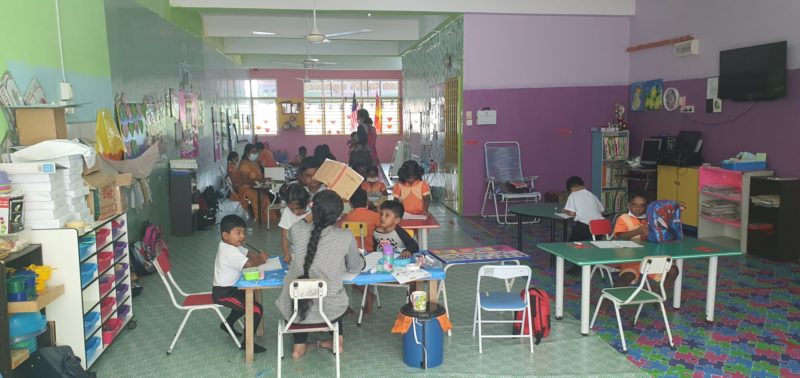 Through this collaboration, these preschools will work towards the long-term sustainability of their preschools.
Also Read: Education Empowerment Through Laptops For Maharani Learning Lab Alumni
With their salaries covered, these teachers are confident that they can pull the resources needed to run the schools too. Shashirekha, a teacher at Tadika Cerah Ceria said, “When we are free from financial instability, our minds are automatically freed up and we can come up with more ideas to upgrade our schools. I have so many ideas but I’ve been lacking the funds to execute them. But now, with this support, I can not only get creative with my lessons for students but also keep upgrading myself to benefit my school.”
Dr Chithra Adiyodi, who serves as an advisor to the board of PPIGM shares, “The preschool teachers have this idea that they are only B40 teachers. We want to support them to upskill themselves and provide quality education so that they can get to a point where they stop labelling themselves as just B40 teachers, but as preschool teachers.”
Through this collaboration, these preschools will work towards the long-term sustainability of their preschools.
Also Read: Education Empowerment Through Laptops For Maharani Learning Lab Alumni
With their salaries covered, these teachers are confident that they can pull the resources needed to run the schools too. Shashirekha, a teacher at Tadika Cerah Ceria said, “When we are free from financial instability, our minds are automatically freed up and we can come up with more ideas to upgrade our schools. I have so many ideas but I’ve been lacking the funds to execute them. But now, with this support, I can not only get creative with my lessons for students but also keep upgrading myself to benefit my school.”
Dr Chithra Adiyodi, who serves as an advisor to the board of PPIGM shares, “The preschool teachers have this idea that they are only B40 teachers. We want to support them to upskill themselves and provide quality education so that they can get to a point where they stop labelling themselves as just B40 teachers, but as preschool teachers.”

